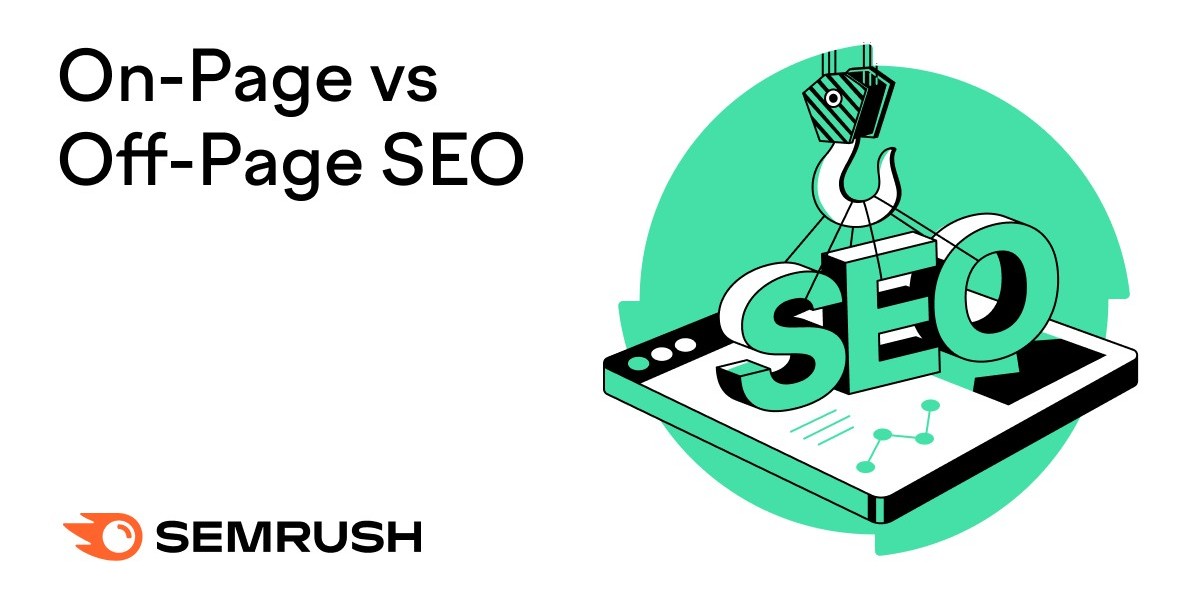Search Engine Optimization (SEO) is one of the most important aspects of digital marketing today. It helps websites gain visibility, attract organic traffic, and reach the right audience. However, SEO isn’t just one thing—it’s divided into two major categories: on-page SEO and off-page SEO. Both play crucial roles in improving a website’s search rankings, but they focus on different elements.
In this article by IB Digital Services, we’ll explain the difference between on-page and off-page SEO, how each works, and why balancing both is essential for achieving long-term online success.
What is On-Page SEO?
On-page SEO refers to all the optimization actions that take place within your website. These are elements you can directly control to improve how search engines understand your pages. The main goal of on-page SEO is to make your website both search-engine-friendly and user-friendly.
Some important factors of on-page SEO include:
Title Tags and Meta Descriptions
Every web page should have a clear and keyword-rich title tag and a meta description. These appear in search results and help users decide whether to click on your page.Content Optimization
High-quality content is the backbone of on-page SEO. Content should include relevant keywords, answer search intent, and provide value to readers. Google values original, well-structured, and informative content that solves users’ problems.Header Tags (H1, H2, H3)
Proper use of headers helps organize content for both readers and search engines. They signal what each section of your page is about.URL Structure
A clean, descriptive, and keyword-friendly URL makes it easier for users and search engines to understand what the page covers.Image Optimization
Adding descriptive alt text and compressing images improve accessibility and site speed—two critical ranking factors.Internal Linking
Linking to other relevant pages within your website helps spread link authority and makes it easier for users to navigate your content.Mobile-Friendliness and Page Speed
Since most users browse on mobile devices, your website must load quickly and look great on all screens. A slow site can hurt both user experience and rankings.
Essentially, on-page SEO ensures that your website is technically sound and content-rich, allowing search engines to easily crawl and index it.
What is Off-Page SEO?
While on-page SEO focuses on what happens inside your website, off-page SEO deals with external factors that influence your ranking. It involves actions taken outside your website to improve its credibility, reputation, and authority.
The primary goal of off-page SEO is to build trust and domain authority in the eyes of search engines like Google.
Key off-page SEO elements include:
Backlink Building
Backlinks are links from other websites pointing to your site. When credible websites link to your pages, it signals to search engines that your content is trustworthy and valuable. However, quality matters more than quantity—spammy or irrelevant backlinks can hurt your SEO.Social Media Engagement
Although social media signals aren’t a direct ranking factor, sharing your content across platforms increases visibility and can drive traffic back to your website. It also helps you build brand awareness.Guest Blogging
Writing high-quality articles for other reputable websites helps you reach new audiences and earn backlinks. It’s one of the most effective off-page SEO strategies.Influencer Outreach
Collaborating with influencers or industry experts can help you gain more exposure and credible mentions.Brand Mentions
Even when your website isn’t linked, mentions of your brand across the web can boost your online authority and trust.Local SEO and Reviews
For local businesses, online reviews and local citations play a major role. Positive reviews on platforms like Google My Business can enhance your credibility and rankings in local searches.
Off-page SEO is about how others perceive your website. The more trustworthy and authoritative your site appears, the higher it’s likely to rank.
On-Page vs Off-Page SEO: Key Differences
Here’s a simple comparison to understand how the two differ:
| Aspect | On-Page SEO | Off-Page SEO |
|---|---|---|
| Focus Area | Inside your website | Outside your website |
| Control | Fully controllable | Influenced by external factors |
| Main Goal | Improve site structure and content | Build authority and trust |
| Key Elements | Content, meta tags, internal links, speed | Backlinks, mentions, social signals |
| Result | Better crawlability and user experience | Higher credibility and visibility |
While both have distinct roles, they are interconnected. Without proper on-page SEO, your site may not rank even if you have many backlinks. Similarly, without off-page SEO, your well-optimized content might not reach its full ranking potential.
Why You Need Both
To succeed in SEO, you need a balanced strategy that includes both on-page and off-page optimization.
On-page SEO helps search engines understand what your website is about and ensures a positive user experience.
Off-page SEO helps establish your website’s reputation and authority across the internet.
Think of it this way: on-page SEO is your foundation, while off-page SEO builds your online reputation. You can’t achieve long-term SEO success without both.
For instance, you might create amazing, optimized content—but without backlinks or external signals, it may remain invisible. Likewise, having great backlinks won’t help if your website is poorly structured or slow to load.
Tips for a Balanced SEO Strategy
Start with a Strong On-Page Foundation – Make sure all technical SEO aspects are covered before focusing on backlinks.
Create Shareable Content – Valuable and engaging content naturally attracts links and shares.
Engage in Ethical Link Building – Avoid buying backlinks; focus on building relationships and earning links organically.
Monitor Performance – Use tools like Google Analytics and Search Console to track rankings, traffic, and link performance.
Stay Updated – SEO trends and algorithms change frequently. Stay informed about Google’s latest updates.
Conclusion
Both on-page and off-page SEO are essential for achieving strong search visibility and sustainable website growth. On-page SEO focuses on optimizing your site’s internal elements, while off-page SEO builds authority and reputation externally. Together, they create a powerful strategy that helps your website rank higher, attract more visitors, and establish trust online.
If you want expert help improving your SEO strategy, IB Digital Services offers professional SEO solutions designed to boost your online visibility and help your business grow. Visit IB Digital Services today to start optimizing your website for success.







